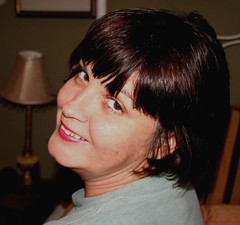 Erle Rahaman-Noronha is serious about permaculture. He spends his time working on his farm, Wa Samaki, where he implements key permaculture practices but he also moves around the country documenting and sharing many of our unique flora and fauna characteristics.
Erle Rahaman-Noronha is serious about permaculture. He spends his time working on his farm, Wa Samaki, where he implements key permaculture practices but he also moves around the country documenting and sharing many of our unique flora and fauna characteristics.CG - What are you looking for when you do a site visit like this one?
Erle - Anything new and interesting, both in seeds and photographs.
This was the second year that I did this trip so I was looking for seeds or plants that I didn't recognize from the previous year. I also like to pick up stuff that did well in our nursery from our previous trip that I may need more of.
Sometimes I may pick up stuff that I already have collected in Trinidad, just to get new genetic material to expand my gene pool on my farm.
CG- It was interesting to read the tags on the photos, what happens to these seeds when they make it across the Orinoco?
 Tons of Timit palm seeds, some from as far away as the Amazon
Tons of Timit palm seeds, some from as far away as the AmazonA few of these then get tossed up onto the berm running along the beach or may wash into a freshwater swamp where they are not constantly being drenched with salt water and may germinate and grow but the chances of survival are slim. Coastal climates are very different from tropical rainforest.
CG - How much do our south coast eco-system depend on the Orinoco? And what are the threats to this unique area?
Erle -From what I have read, the south coast ecosystems and most of Trinidad are really just an extension of the South American ecosystems. We used to be attached to South America at one time.
This is why Trinidad is blessed with such diversity compared to most of the other Caribbean islands. That being said, the southern ecosystems are unique in their own ways in that they have flora that you don't see anywhere else in Trinidad and that is probably because of things washing up and taking hold from the Orinoco. Probably the biggest threats to these areas are indiscriminate fires and development either for housing/industry or monocrop agriculture.
CG - How much wildlife makes it across?
Erle-I've heard stories of anacondas, tapirs and capybaras coming across on the floating islands. Most get killed by hunters when they reach. People have also told me that sometime freshwater aquarium fish like tetras make it across after heavy flooding. We found a zanji (freshwater eel) on the beach that was still alive. They can tolerate salt water for a few days.
 The freshwater eel trail as the eel tried to get back to the sea. It had washed ashore on some of the plants. It would have eventually died in the salt water. We put him back in a fresh water pond
The freshwater eel trail as the eel tried to get back to the sea. It had washed ashore on some of the plants. It would have eventually died in the salt water. We put him back in a fresh water pondErle - I think Allan is the data base. His knowledge has always amazed me. He will spend hours combing the beaches and knows the scientific names of almost everything that comes ashore. He's been doing this for over 20 years. Part of my own passion for these trips is to begin to collect some of this data even if it's just with my photos and to share it with everyone by posting it on our website (and FB).
CG - It is a beautiful landscape. What's it like to visit this part of Trinidad? Do you have a different sense of the island?
Erle - The landscape is very different, large coconut estates, huge swamps, small quiet fishing villages and beaches quite unlike those along the north coast. The pace of life is a lot slower. It is sad seeing all the dying coconut estates, but this is the inevitable result of mono crops and the rapid spread of disease with a constantly travelling human population. It's something that worked in the past but is no longer sustainable.
CG - What would you like people to know about permaculture and how it impacts on the future of small islands like Trinidad and Tobago.
Erle - Permaculture is about designing and building sustainable communities that don't have a detrimental impact on their ecosystems.
It's about having the information and making decisions that will positively impact our children, grandchildren and great grandchildren. Its about providing all of our food, water and energy needs from within our country instead of being so heavily dependent on imports.
It provides most of the solutions that the global community is currently searching for and it can be done by everyone slowly moving outwards from their doorstep . It won't make big business rich because it makes us independent of them and so you don't hear much about it.
The current government is already saying money is tight, what happens in 10 years when our proven gas reserves run out..most communities that embrace permaculture now will reap the rewards then...
All images and information courtesy Erle Rahaman-Noronha. Thanks Erle!

























